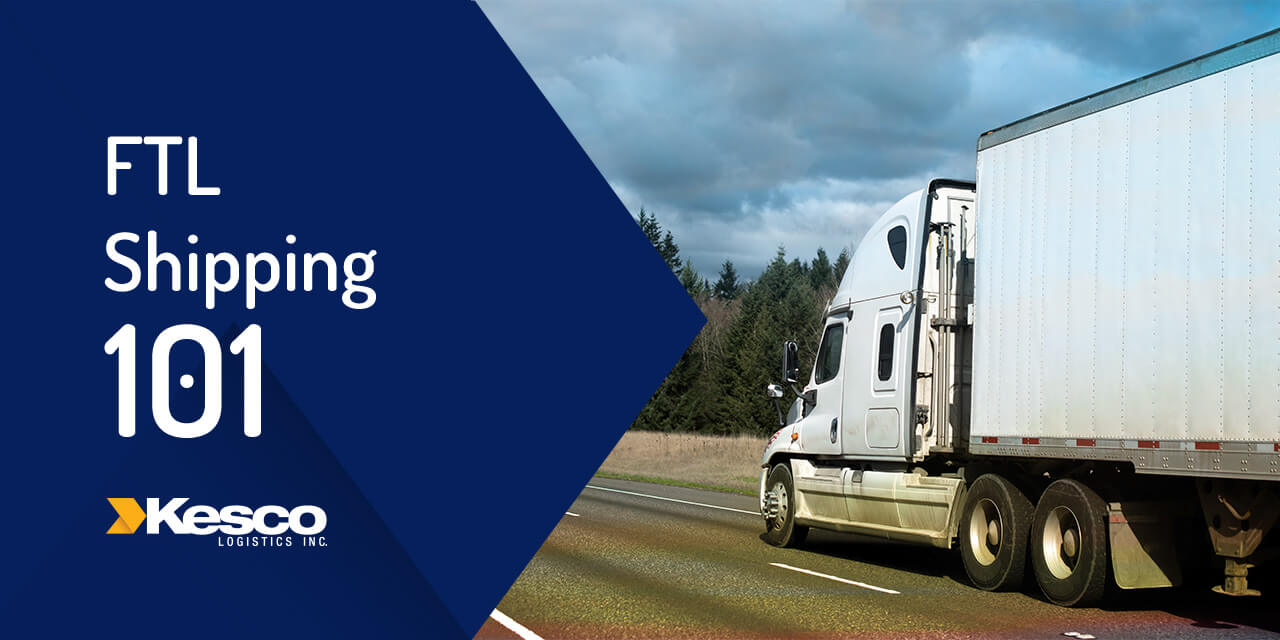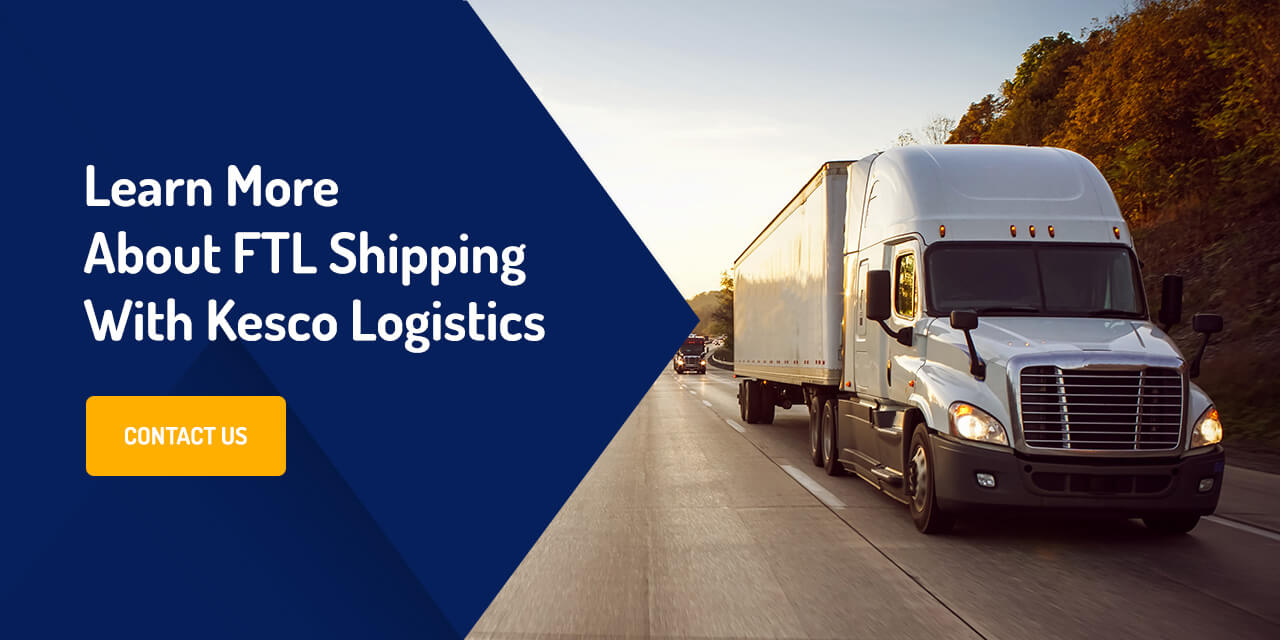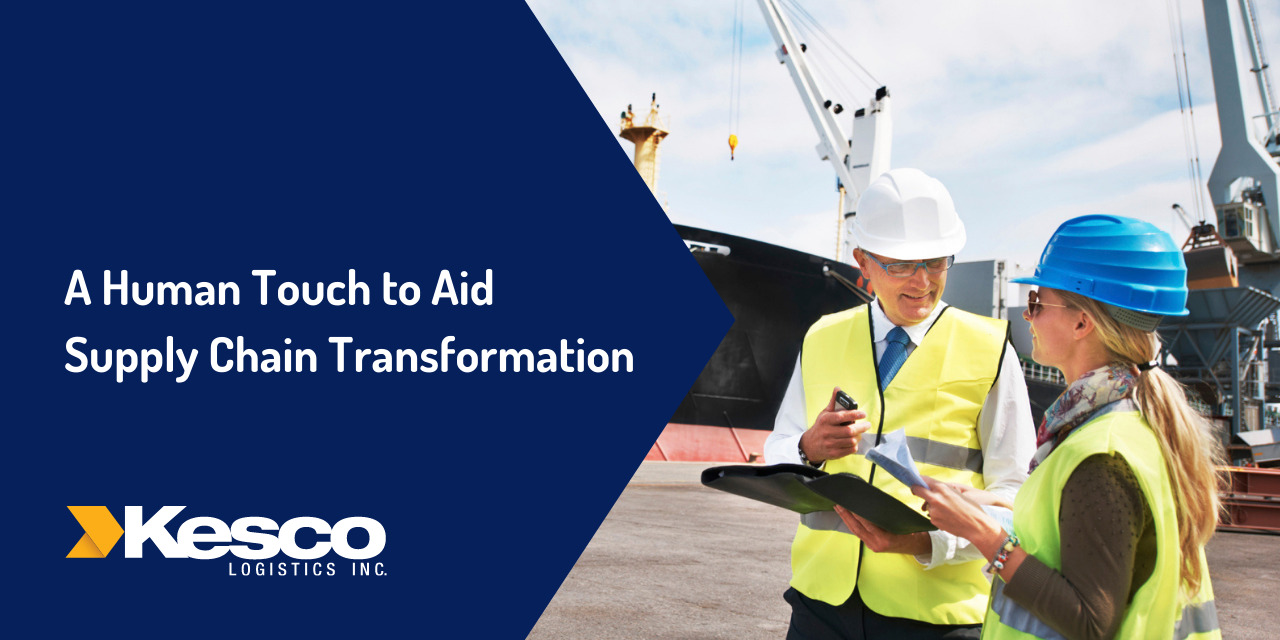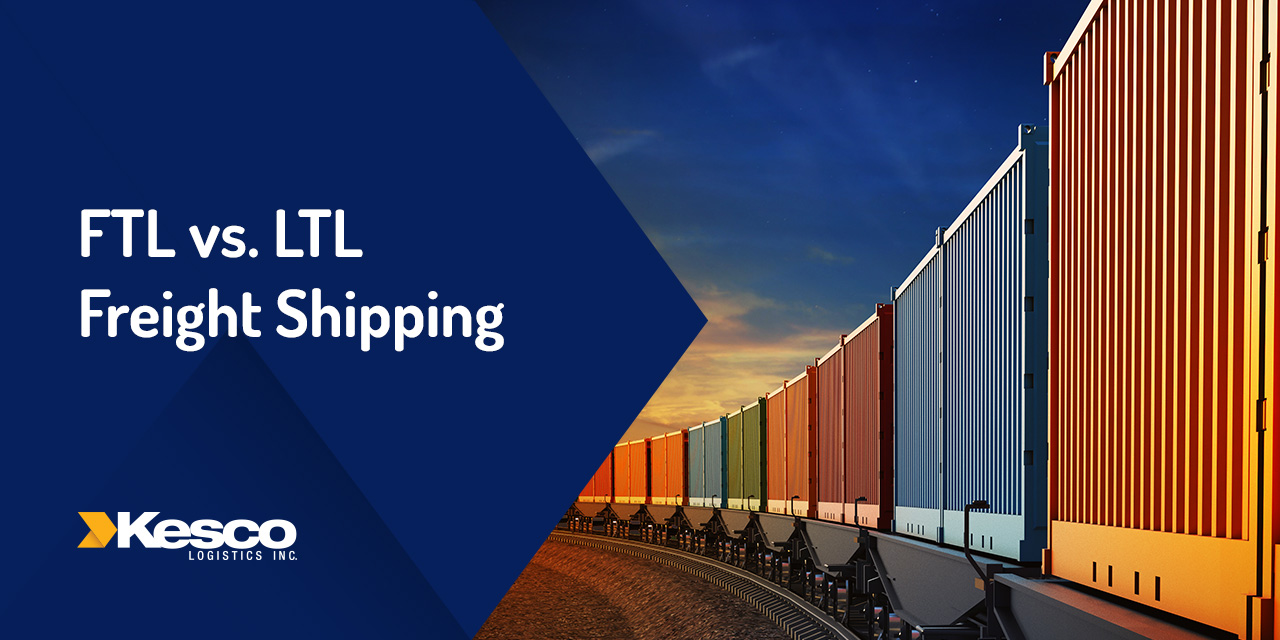Full truckload (FTL) shipping is the go-to shipping option for many distributors, particularly those working with large or sensitive cargos. It offers speed and security and can be faster and more cost-effective than other shipment options. Truck freight is the transit method of choice for almost three-quarters of the United State’s freight by weight, and FTL is one way to take advantage of its speed and cost-effectiveness.
At Kesco Logistics, Inc., we offer FTL shipping and many other freight solutions to deliver the ideal transit for your goods and business needs. Learn more about the basics of FTL shipping and when it usually makes the most sense.
FTL Shipping 101
FTL refers to “full truckload” shipping, in which the entire tractor-trailer is used by one company. When you hire a truck for an FTL shipment, you pay for the entire shipment container, regardless of whether your goods fill the whole thing. A full truck might ship tens of thousands of pounds, but even if you don’t have a full load, you don’t have to share it with other distributors.
With FTL shipping, you can send your cargo directly to its destination with minimal extra handling. In general, FTL is cheaper but slower than air freight.
FTL Shipping vs. LTL Shipping
FTL shipping is often compared to less-than-truckload or LTL shipping. In this method, you pay for just a portion of the truck’s space. LTL is great if you aren’t shipping enough goods to fill up the full cargo space. You’ll be sharing space with goods from other distributors in the rest of the container, and that means there will be more drop-offs and touchpoints during which the product is handled.
FTL Shipping Pros and Cons
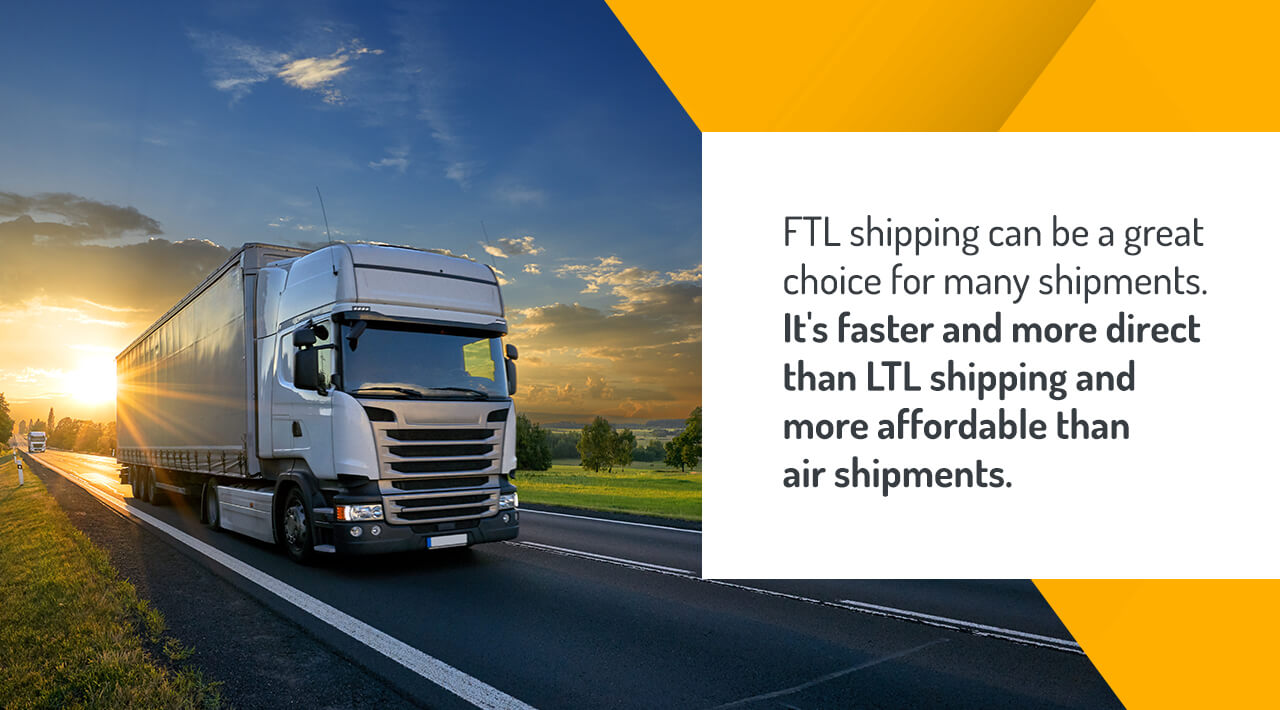
FTL shipping can be a great choice for many shipments. It’s faster and more direct than LTL shipping and more affordable than air shipments. Like any shipping option, it has its share of disadvantages, too.
Pros of FTL Shipping
Some of FTL shipping’s benefits include:
- Reliability: FTL shipping dispatches an entire truck for your items and your items only. You and your logistics provider don’t need to worry about the impacts of other products on the route or the placement of the items. They can more readily provide dedicated service, and you get more say in what happens to the transport.
- Simplicity: Loading and unloading a truck is easy to do and doesn’t require specialized equipment. It also doesn’t require connections with airports, train stations or sea ports. If you can drive to your drop-off location, so can an FTL shipment.
- Speed: Similarly, an FTL shipment can go straight to its destination, as opposed to LTL’s multiple stops or the transit from an airport to your warehouse. The transportation itself may not be as fast as air travel, but it takes less time to work with the cargo since there are fewer handling requirements and there’s no need to worry about proximity to airports. Simpler unloading and loading can also reduce the time it takes to get your items where they need to go. FTL is generally much faster than ocean freight, too.
- Security: FTL is generally more secure because there are fewer touchpoints for the items. There’s less transit time and less product movement, keeping your goods on their course and minimizing handling requirements. FTL shipments may also reduce the need for protective containers, allowing you to use lower-cost options. For instance, tough metal crates may be needed for sensitive items, but wooden boxes might be enough in a smoother shipping method like FTL.
- Cost: Depending on the load you’re shipping, FTL might be the most cost-effective option as some shipments are cheaper to send via FTL.
Cons of FTL Shipping
Drawbacks of FTL shipping include:
- Load size: Generally, FTL is most economical if you send full loads. Partial loads do allow you to take advantage of benefits like speed and security, but if they’re too small, you’re paying for space you’re not using. The best bang for your buck in FTL shipping is packing the truck full or sending heavy or oddly shaped items.
- Cost: Although it could be a pro, the cost of FTL shipping can also be a con if you’re sending smaller loads.
- Environmental friendliness: If you’re not filling the entire truck, FTL is less efficient. Estimates place the percentage of empty miles driven by private truck companies at 33%. For an industry that already creates significant carbon emissions, FTL might not do the planet any favors. If your company focuses on green initiatives and reducing its footprint, an unfilled FTL shipment generally isn’t as efficient.
When to Use FTL Shipping
The most beneficial shipping method will depend on the type of cargo you’re transporting. If you work with any of the following types of shipments, FTL is typically the best choice:
- Large shipments: If you know you’ll be sending enough items to pack the truck, FTL is typically the most economical choice. This applies to both the physical size of the shipment and its weight. Unlike some other freight options, the costs of FTL generally aren’t affected by weight.
- High-value, fragile or hazardous items: The increased security of FTL makes it a good choice for expensive, dangerous or sensitive items. With less handling, faster transit and more control over the shipping, you can generally expect better protection for your goods, both from theft and damage.
- Time-sensitive products: If you need your items to get to their location right away, FTL shipping can be a good choice. It is faster and more direct than other shipment methods. When compared to LTL shipping, it allows your items to head straight to their destination. Expedited products and food items are often better suited to FTL shipments.
- Products with special requirements: FTL shipping may also be a better choice if the goods have special handling requirements, like refrigeration or crane and forklift loading. Refrigerated trucks and flatbeds often support FTL shipments.
FTL Shipping From Kesco Logistics
FTL shipping is one option among many. At Kesco Logistics, we can help you find the right freight solution — including combinations of shipping methods — for your products and business.
Our FTL shipping options offer real-time visibility, so you can keep a close eye on your shipments wherever they are. From time-sensitive shipment options to efficient network management, our comprehensive freight services are built to meet an array of domestic and international shipping needs. Reach out to us to learn more about our FTL shipping and explore freight options for your cargo.

